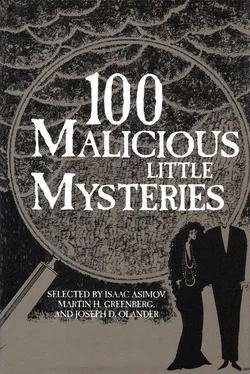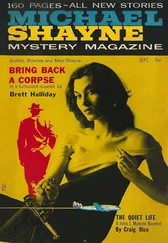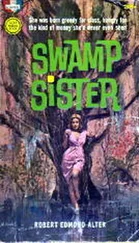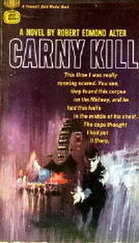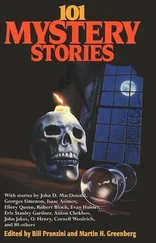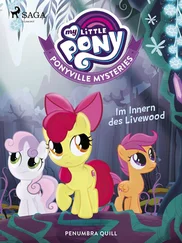Funeral Music
by Francis M. Nevins, Jr.
As he wrote the confession he could hear the laughter of children playing in a distant meadow.
Hydrangea bushes, deep blue and soft white, swayed in the light summer breeze outside the study windows. He bent over the steel typing table and tapped out the confession with slow precision, using only the middle finger of his right hand. From the stereo speakers mounted on wall brackets above the desk came the softly haunting strains of the Baudelin String Suite No. 2 as the words slowly filled the sheets of cream bond paper under the printed heading: H. JOSHUA HAWES.
“Before I take my life I must write this. Paul Baudelin’s second wife did not die by her own hand but by mine.
“I will not repeat at length what I established in my book, The Life and Music of Baudelin, and what has been confirmed for me each day of the seven years I have lived with the Master as his business manager, biographer, and shield against the blows of everyday existence. Before his first marriage he was simply one of many competent young composers in a milieu dominated by his betters — Stravinsky, Shostakovich, Hindemith, Poulenc, Milhaud.
“Then in 1947 he met Claudette and within hours he was savagely, passionately in love. And on their honeymoon in Spain that winter occurred that famous freak accident in contemporary music history — the sudden collapse of a decaying and condemned building as she happened to be walking along the street, so that within moments Mme. Claudette Baudelin was crushed beneath tons of rubble, and Baudelin, who had been so full of the joy of love, was desolate.
“It was the shadow of that lost love, snatched away by sudden blind chance, that filled, one might almost say obsessed, his music from that day, and lent to his compositions a fullness and poignancy, a sense of the merciless randomness of the universe. It is to the fate of Claudette that we owe the four great Symphonies, the second Suite for Strings, the cycle of Death Songs — all the major works of Baudelin’s second period which established him as the foremost French composer of the generation.
“And then last year he fell in love again. He was in New York City to conduct the Philharmonic in his Third Symphony. Elana Nassour was second violinist, and her musicianship was superb. It was her rendition of the sublimely difficult passage at the end of the lento movement that first stirred his heart, Baudelin told me. The night after the performances of the Symphony they slept in each other’s arms.
“Suddenly he was like a boy of eighteen again, this fifty-year-old titan of world music. The universe revolved around Elana and he was soaringly happy. The sense of unutterable loss that was the hallmark of his second period vanished. He almost ceased composing, and what little he wrote was no longer worth hearing. I couldn’t stand to see that happen. I loved his work too much.
“And so, four months after they were married — I allowed him that much time of happiness — I mixed an overdose of sleeping pills into the thick Turkish coffee she drank each night before bed.
“I was both careful and lucky. There has been much speculation whether her death was accident or suicide, but no suggestion of murder. And in the year since her death, out of his grief at the loss of her, Baudelin has begun to compose great work again. If she had lived, the Fifth Symphony and the tone poem La Mort de Dieu would never have been. That is my justification.
“But it is not enough. I have come to see that no work of art is worth a human life, not even a masterpiece by Baudelin. I have committed a great wrong which can be expiated in only one way. And so I shall go upstairs and take the revolver from my night table drawer and place the barrel in my mouth and squeeze the trigger.
“Baudelin, old friend and benefactor, do not curse my memory, I beg you.”
The string suite on the stereo came to an end, and the record player shut itself off with a sharp click. He tugged the third sheet of paper out of the typewriter — it began with the words “can be expiated” — and reread the confession with infinite care.
When he was satisfied he swiveled to the oak desk and placed the final sheet of cream bond on the blotter, above the last page of a signed copy of the management contract between Paul Baudelin and H.Joshua Hawes.
And then Baudelin picked up one of the felt-tipped pens with which Hawes customarily wrote, and boldly traced the signature of H.Joshua Hawes at the end of the suicide note, deliberately permitting variations, remembering that no two signatures by the same person are ever exactly the same.
When he compared the result with Hawes’s genuine signature, he gave a little gasp of delight: the forged signature, he was sure, would deceive an expert. He put the contract away in a drawer, slipped the protective lid over the typewriter, and fastened the sheets of the confession together with a paper clip. He then crossed the rooms of the spacious Connecticut farmhouse they had rented for the season.
The perfect murder, he reflected, is not so difficult after all; in fact it requires far less skill than the composition of a symphony. He sprang up the staircase two steps at a time and slipped into Hawes’s room without knocking.
His manager-biographer-buffer was sprawled in a wing chair with his huge belly bulging beneath his scarlet dressing gown and his slippered feet resting on the edge of the bed. On the little teakwood table beside the chair there was a water tumbler half full of thick apricot brandy. A bright-jacketed detective novel lay open on Hawes’s lap.
Baudelin sauntered casually across the room until he was within one step of the night table where he knew Hawes kept his revolver.
“What’s up?” Hawes glanced up half irritated and spoke in a foggy mutter.
Touching only the end of the paperclip, not the papers themselves, Baudelin set the three sheets of the suicide note on top of the book on the other’s ample lap. “You might find this document more interesting than the detective story.”
As Hawes began reading, Baudelin backed toward the night table and eased the drawer open noiselessly, but kept his eyes fixed on Hawes as his fingers hunted for the weapon. First the musicologist’s mouth puckered in a whistle of amusement; then as he read more and more of the confession his face seemed to turn paste-white and his thick lips trembled in sudden terror. At the moment Hawes saw the forgery of his own signature on the last page, Baudelin snatched the revolver out of the drawer and pointed it at the other. Hawes’s mouth fell open in fright and disbelief.
“Wider, please.” Baudelin smiled bleakly and curled his finger around the cool metal of the trigger.
And suddenly H. Joshua Hawes began to roar with laughter. Great uncontrollable waves of mirth shook his huge frame and he rocked back and forth in the wing chair as if the revolver barrel were the most outrageously funny joke in the world. He groped blindly for the tumbler of apricot brandy, lifted the glass toward Baudelin like a salute, and gulped the drink down in a single swallow.
“Oh,” he mumbled, his face dripping with sweat. “What a scheme, what an absolute love of a scheme! You were right, you know. Much better than this novel.”
Baudelin was laughing too, but more quietly. He returned the revolver to the night table and shut the drawer tight. “I imitated your writing style well, no? Just the right touch of the pompous and the artificially dramatic.” He was delighted at the way Hawes bit down on his lower lip at his touch of criticism. “And not only your style did I capture, but your typing touch as well! You are a trained ten-finger typist, so to match your even touch on the keyboard I typed the entire confession with my one finger.”
Читать дальше
